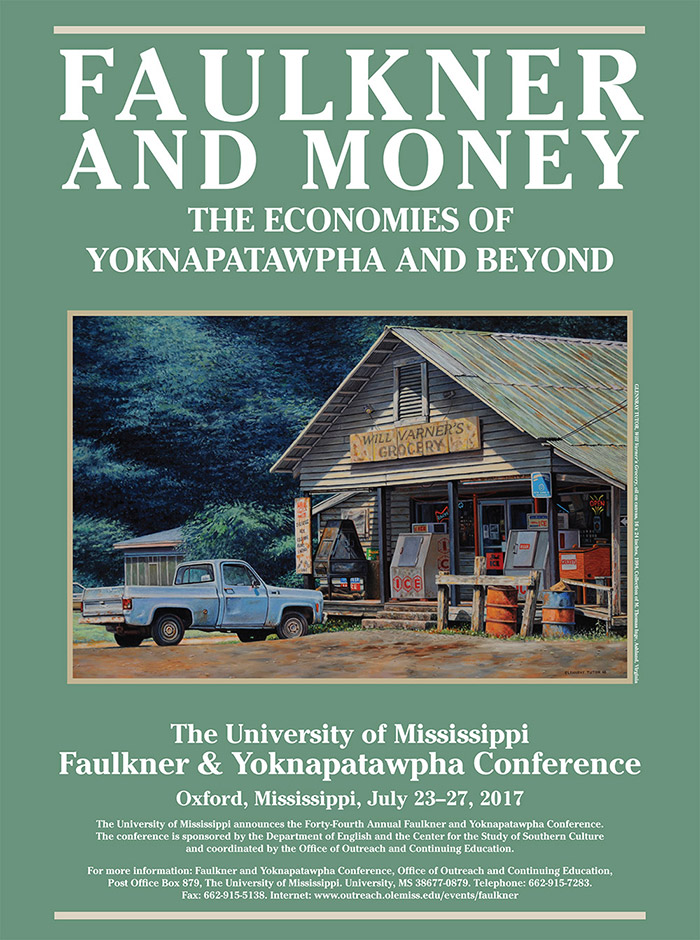
Panel. Books and Things
Location
Nutt Auditorium
Start Date
25-7-2017 3:30 PM
Description
- “Bookless Mississippi”: The Cultural Economy of Reading in the Depression-Era South / Sarah E. Gardner, Mercer University
This paper examines the ways in which academics along with book industry insiders understood depressed rates of book buying and borrowing in the South. These were no idle concerns. During the 1930s, the south accounted for a little more than 7 percent of the nation’s book purchases. High rates of poverty and illiteracy accounted for much of the problem, but not all. Those with a vested interest in fostering “book consciousness” in the south, including Howard Odum, Louis Round Wilson, and William Couch, devised creative schemes to promote reading in the region. Not surprisingly, their efforts proved largely unsuccessful. As they quickly learned, those concerned solely with the bottom line were content to write the south off. The implications were considerable. As newspaper editor Jonathan Daniels ruefully observed, “books in the South, like cotton in the South, are produced for the export trade.” - Flem Snopes Under the Material Spell: Reading Things in the Snopes Trilogy / Han Qiqun, Nanjing Forestry University
This paper scrutinizes a manifold of systematically related things Flem Snopes possessed, bought and gave as gifts in the Snopes Trilogy, and especially explores the material powers of things in the formation of social identity and gender subjectivity of Flem. Flem, quasi-thing like under the material spell, is employed by William Faulkner to represent the dark side of the American Dream within the context of the transforming south, displaying an interactive relationship between the social changes and the southern citizens’ identity in the transitional period from the American new south to the modern south.
Relational Format
Conference proceeding
Recommended Citation
Gardner, Sarah E. and Qiqun, Han, "Panel. Books and Things" (2017). Faulkner and Yoknapatawpha Conference. 15.
https://egrove.olemiss.edu/fy/2017/schedule/15
COinS
Jul 25th, 3:30 PM
Panel. Books and Things
Nutt Auditorium
- “Bookless Mississippi”: The Cultural Economy of Reading in the Depression-Era South / Sarah E. Gardner, Mercer University
This paper examines the ways in which academics along with book industry insiders understood depressed rates of book buying and borrowing in the South. These were no idle concerns. During the 1930s, the south accounted for a little more than 7 percent of the nation’s book purchases. High rates of poverty and illiteracy accounted for much of the problem, but not all. Those with a vested interest in fostering “book consciousness” in the south, including Howard Odum, Louis Round Wilson, and William Couch, devised creative schemes to promote reading in the region. Not surprisingly, their efforts proved largely unsuccessful. As they quickly learned, those concerned solely with the bottom line were content to write the south off. The implications were considerable. As newspaper editor Jonathan Daniels ruefully observed, “books in the South, like cotton in the South, are produced for the export trade.” - Flem Snopes Under the Material Spell: Reading Things in the Snopes Trilogy / Han Qiqun, Nanjing Forestry University
This paper scrutinizes a manifold of systematically related things Flem Snopes possessed, bought and gave as gifts in the Snopes Trilogy, and especially explores the material powers of things in the formation of social identity and gender subjectivity of Flem. Flem, quasi-thing like under the material spell, is employed by William Faulkner to represent the dark side of the American Dream within the context of the transforming south, displaying an interactive relationship between the social changes and the southern citizens’ identity in the transitional period from the American new south to the modern south.

